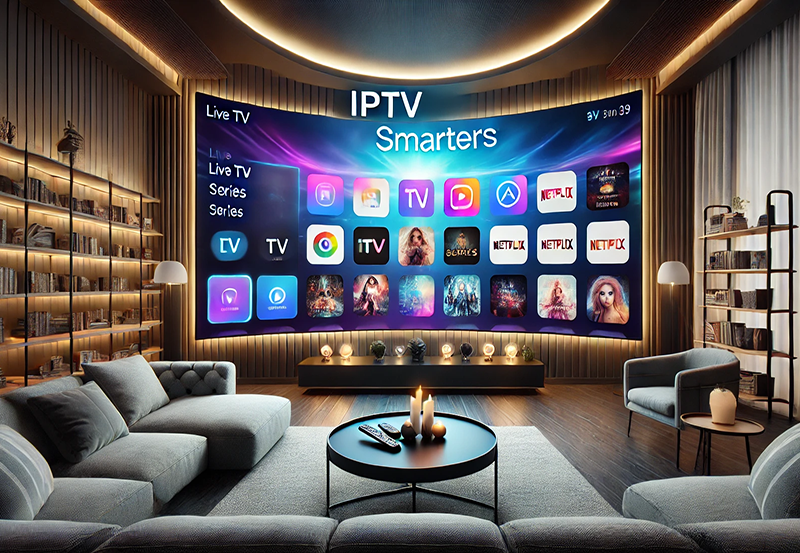The world of Internet Protocol Television (IPTV) is teeming with possibilities that have revolutionized the way people consume media. Yet, as with any technological paradigm shift, myths and misconceptions abound. In this detailed article, we aim to debunk widespread misconceptions about IPTV, with a particular focus on the comparison between Kodi and other Linux players. If you’ve ever wondered which platform might best suit your needs, keep reading—we’ve got you covered.
Understanding the Basics: What is IPTV?
First, let’s break down what IPTV actually encompasses. Simply put, IPTV stands for Internet Protocol Television. Unlike traditional broadcasting methods, IPTV uses the internet to stream live television and on-demand content. This switch from old-school methods to the internet opens up a host of new possibilities and services. But what exactly does this service entail?
IPTV services are accessible across various devices, such as smart TVs, tablets, and even smartphones. Indeed, for those using IPTV for Android, the platform has truly revolutionized how global IPTV services are delivered.
Expert Advice:
Access the best global content with IPTV service in Canada for unmatched variety and performance.
The Various Types of IPTV Services
To fully grasp the myths and realities of IPTV, one must first understand the different kinds available:
- Live Television: Just like traditional broadcasting but through the internet.
- Time-Shifted Media: This allows users to replay broadcasts later.
- Video on Demand (VoD): This presents an extensive library of content for users to browse.
Understanding these different forms of IPTV is essential for navigating this modern streaming landscape. But where does Kodi fit into this?
Kodi: A Prominent Contender
Kodi isn’t just a name—it’s a major player in the world of IPTV and media streaming. Developed as an open-source media player, Kodi provides users with high flexibility and the ability to customize. However, with such flexibility comes a bit of controversy and multiple myths about its capabilities and legalities.
The Genesis of Kodi
Kodi originated as an open-source project for the Xbox, known as Xbox Media Center. Over time, it evolved into a fully-featured software media center available on various platforms, including Linux. Despite its wide adaptability, questions concerning legality and usability often cloud its reputation.
Kodi’s Flexibility and Compatability
One of the big pluses of Kodi is its extensive compatibility. Users find they can install Kodi on nearly any device—they utilize it as a conduit for their IPTV for Android needs or enjoy it on their Linux desktop. This flexibility allows users to tailor the Kodi experience precisely to their liking.
Dispelling Myths: Kodi Vs. Other Linux Players
Many assume that Kodi stands alone in the Linux world, overlooking other powerful alternatives. This section confronts these myths and provides clarity.
Myth: Kodi is the Only Linux-Compatible IPTV Player
While Kodi is the most renowned, it’s far from the only choice. Options such as VLC Media Player and Plex also support IPTV, often offering distinct features. Thus, understanding your specific media needs can help guide your choice.
Alternative Linux Players
We’ll explore some other Linux players worth considering:
- VLC Media Player: Known for its straightforward interface and robust support for various file formats.
- Plex: Offers local media management and streaming capabilities.
- MythTV: Primarily focuses on video recording and playback.
Myth: Using Kodi is Illegal
This myth stems from misunderstandings about what Kodi actually does. Kodi itself is a legitimate software, yet the legality concerns spring from how one chooses to use it. It supports third-party add-ons that sometimes lead to illegal streaming, causing confusion about its legal status.
The Modern IPTV Experience
IPTV isn’t just about TV anymore. It’s about changing how viewers interact with media globally. Kodi and other Linux players have revolutionized viewing habits. But as part of this revolution, it’s essential to discern how to best utilize these technologies responsibly.
Global IPTV Services: A Seamless Experience
Global IPTV services have made content more accessible than ever. They’ve heavily contributed to the revolution of media experiences by featuring an extensive range of international content. This, used in conjunction with Kodi or other players, can truly revolutionize your IPTV adventure.
Enhancing Your Viewing Pleasure
To maximize your IPTV journey:
- Customizable Interface: Choose skins and layouts that suit your taste.
- Quality Streaming: Ensure you have a stable internet connection for seamless viewing.
- Legal Considerations: Use trustworthy IPTV providers to circumvent legal issues.
Future Outlook: What’s Next?
The IPTV landscape continues to evolve, and it’s anticipated that further advancements will shape future streaming experiences. New technologies are just on the horizon, promising even more innovation. Keeping abreast of developments will enable users to make informed decisions about their media consumption.
Trends That Could Change the Game
To get a glimpse into what lies ahead:
- AI Integration: Personalized content suggestions.
- Interactive Experiences: Live polling and engagement during streams.
- Improved Connectivity: Faster connections for ultra-HD quality.
The future holds exciting possibilities for IPTV users willing to embrace change and innovation.
FAQs About IPTV and Kodi

Is using Kodi for IPTV Legal?
Yes, Kodi is legal. It is open-source software designed to play media. However, the legality may be compromised if used with illicit third-party add-ons. Always ensure you’re streaming through legal channels.
Can I use other Linux media players besides Kodi?
Absolutely. Besides Kodi, media players like VLC and Plex are compatible with Linux and have distinctive features, making them viable alternatives.
What are the benefits of using IPTV for Android devices?
Using IPTV for Android devices allows access to television content anywhere, provided there’s an internet connection. This makes it convenient and versatile for users on the go.
How do global IPTV services enhance user experiences?
Global IPTV services bring international content to viewers, enhancing cultural exposure and providing a diverse range of programming options that can significantly enrich user experiences.
How can I enhance my IPTV viewing adventure?
Consider customizing your player interface, ensuring an optimal internet connection, and using legally sourced content to enhance the IPTV experience. These tips will enhance both functionality and enjoyment.
Delving into the world of IPTV and discerning between various myths surrounding platforms like Kodi can empower users to make better choices. By focusing on legal usage and being open to alternatives, you can truly elevate your media journey.
Discover the Best IPTV Services in the UK for Uninterrupted Streaming





